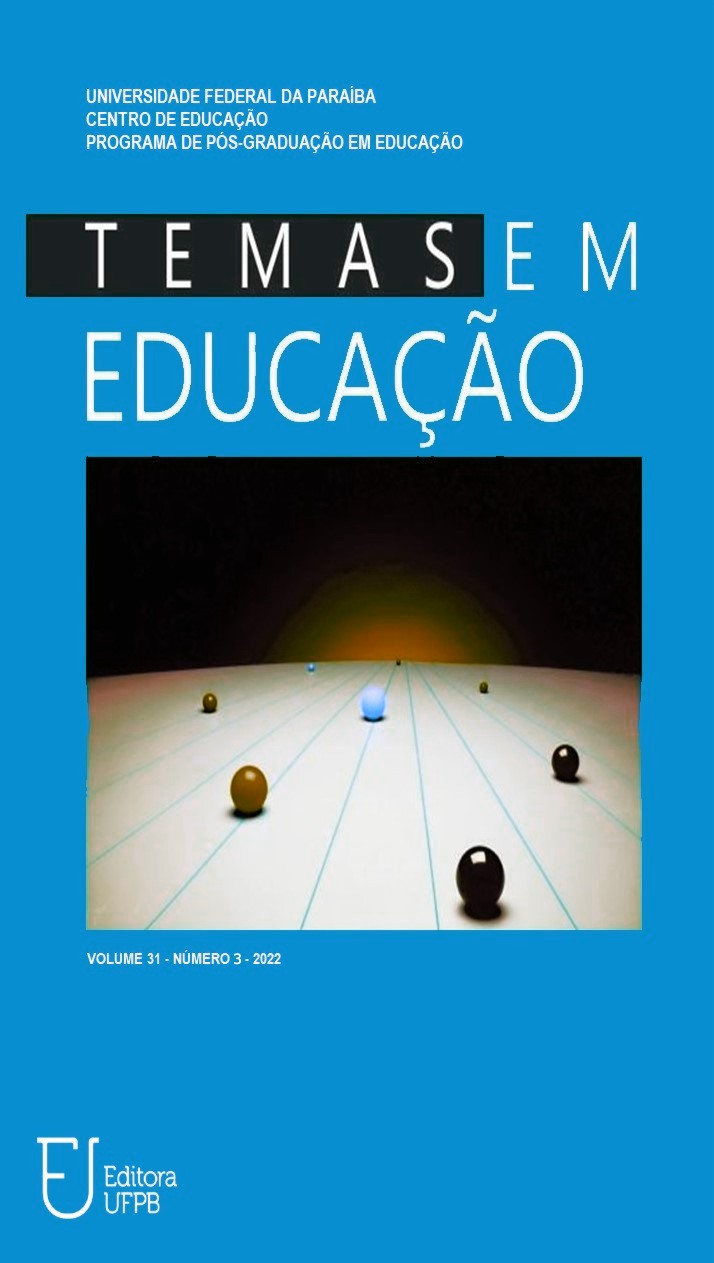THE PAULO FREIRE METHOD OF LITERACY IN 40 HOURS IN ANGICOS:
WHAT BRAZILIAN NEWSPAPERS SAY (1962-1964)
Keywords:
Paulo Freire Method, Literacy for youth and adults, 40 hours of Angicos, Newspaper, Paulo FreireAbstract
The objective is to analyze the representations of Paulo Freire's adult literacy method in the 40 hours in Angicos/RN, based on Brazilian newspapers, in a time frame from 1962-1964. Enunciated as a milestone in the history of Brazilian education, this experience, which is close to the sixty-year old, is known worldwide as "The 40 hours of Angicos", being identified as synonymous with one of the most successful experiences in the history of Youth and Adult Education, resulting in in the literacy of 300 people in 40 hours. Methodologically, this is a documental research, and for this, Brazilian newspapers available at Hemeroteca Digital Brasileira, of the National Library Foundation (BNDigital), were used, in which Luca (2006) and Zicman (1985) contributed to the understanding of periodicals from the press as a source. The research is situated in the field of the history of education, notably in the dimension of cultural history according to Chartier (1990). We conclude that the emphasis of this work was centered on the Paulo Freire Literacy Method for Youth and Adult Education and on the reminiscences of Brazilian newspapers (1962 to 1964), thus contributing to the epistemological field of the history of youth and adult education in Brazil. Through the research, it was possible to identify and map representations around the Paulo Freire method of literacy and its application in Angicos, as well as the author of the method. Thus, corroborating the construction and manifestation of memories of youth and adult education in the process of reframing the culture of liberation of a people, through education.Downloads
References
BARROS, José D.’Assunção. História Cultural e a Contribuição de Roger Chartier. Diálogos, v. 9, n. 1, p. 125-141, 2005. Disponível em : http://periodicos.uem.br/ojs/index.php/Dialogos/article/view/41422. Acesso em : 15 Jul 2021
BNDIGITAL, Fundação Biblioteca Nacional. Disponível em : https://bndigital.bn.gov.br/hemeroteca-digital/ Acesso em: 24 Jun 2021.
BRASIL, Eric; NASCIMENTO, Leonardo Fernandes. Historia digital: reflexiones de la Hemeroteca Digital Brasileña y el uso de CAQDAS en la reelaboración de la investigación histórica. Estudos Históricos (Rio de Janeiro), v. 33, n. 69, p. 196-219, 2020. Disponível em : https://www.scielo.br/scielo.php?pid=S0103-21862020000100196&script=sci_abstract&tlng=es. Acesso em : 27 Jul 2021.
CARVALHO, Maria Elizete Guimarães; DA CRUZ BARBOSA, Maria das Graças. Memórias da educação: A alfabetização de jovens e adultos em 40 horas (Angicos/RN, 1963). Revista HISTEDBR On-Line, v. 11, n. 43, p. 66-77, 2011.
CPDOC, FGV. Centro de Pesquisa e Documentação de História Contemporânea do Brasil. Programa Nacional de Alfabetização. Rio de Janeiro, 2009. Disponível em : http://www.fgv.br/cpdoc/acervo/dicionarios/verbete-tematico/programa-nacional-de-alfabetizacao-pna. Acesso em : 08 Ago 2021.
DOMINGOS, Charles Sidarta Machado. Quando éramos “irreconhecivelmente inteligentes”: o nacionalismo dos primeiros anos 60 no Brasil. Diálogos, Maringá, v. 1, n. 1, p. 381-400, 2014. Disponível em: https://periodicos.uem.br/ojs/index.php/Dialogos/article/view/35958/18579. Acesso em: 31 Mai. 2021.
GERMANO, José Willington. As quarenta horas de Angicos. Educação & Sociedade, v. 18, n. 59, p. 391-395, 1997. Disponível em: https://www.scielo.br/scielo.php?pid=S0101-73301997000200009&script=sci_arttext&tlng=pt. Acesso em: 03 Jun 2021.
GIANELLI, Carlos Gregório dos Santos. O acervo digitalizado da Revista do Rádio na Hemeroteca Digital da Biblioteca Nacional: Reflexões e usos da História Digital no tempo presente. Escritas. Vol.8, n.2, 2016. Disponível em : https://sistemas.uft.edu.br/periodicos/index.php/escritas/article/view/2452/9389. Acesso em : 30 Jul 2021.
GUERRA, Marcos. A experiência de Angicos. Em Aberto, v. 26, n. 90, 2013. Disponível em: http://portal.inep.gov.br/documents/186968/485895/Sobre+as+40+horas+de+Angicos%2C+50+anos+depois/a4007d57-b371-49e2-bd01-6af8ed570482?version=1.3 Acesso em: 06 Jun 2021.
LUCA, T. R. História dos, nos e por meio dos periódicos. In: PINSKY, C. B. (Org.). Fontes Históricas. São Paulo: Contexto, 2006. p. 111-153. Disponível em : http://gephisnop.weebly.com/uploads/2/3/9/6/23969914/fontes_historicas_carla_bassanezi_pinsky.pd. Acesso em : 19 Jul 2021.
SILVA, Nelson. Plano que começa dia 20 vai alfabetizar 400 mil adultos. Última Hora. Rio de Janeiro, 11 Mar 1964. Disponível em : http://memoria.bn.br/DocReader/DocReader.aspx?bib=386030&pesq=%22M%C3%A9todo%20Paulo%20Freire%20de%20Alfabetiza%C3%A7%C3%A3o%22&pasta=ano%20196&pagfis=97968 Acesso em 01 Jul 2021.
TOLEDO, C. de A. A. de; SKALINSKI JUNIOR, O. A imprensa periódica como fonte para a história da educação: teoria e método. Revista HISTEDBR On-line, Campinas, SP, v. 12, n. 48, p. 255–268, 2013. DOI: 10.20396/rho.v12i48.8640020. Disponível em: https://periodicos.sbu.unicamp.br/ojs/index.php/histedbr/article/view/8640020. Acesso em: 31 jul. 2021.
ZICMAN, Renée Barata. História através da imprensa: algumas considerações metodológicas. Projeto História: revista do programa de estudos pós-graduados de história, v. 4, 1985. Disponível em: https://revistas.pucsp.br/revph/article/download/12410/8995. Acesso em: 24 Jun. 2021.
Downloads
Published
How to Cite
Issue
Section
License
Copyright (c) 2022 Revista Temas em Educação

This work is licensed under a Creative Commons Attribution 4.0 International License.
Authors who publish in this journal agree to the following terms:
. Authors retain the copyright and grant the journal the right to first publication, with the work simultaneously licensed under the Licença Creative Commons Attribution that allows the sharing of the work with acknowledgment of authorship and initial publication in this magazine. . Authors are authorized to assume additional contracts separately, for non-exclusive distribution of the version of the work published in this journal (eg, publishing in institutional repository or as a book chapter), with acknowledgment of authorship and initial publication in this journal.
. Authors are permitted and encouraged to publish and distribute their work online (eg in institutional repositories or on their personal page) at any point before or during the editorial process, as this can generate productive changes, as well as increase impact and citation of the published work (See O Efeito do Acesso Livre).



















